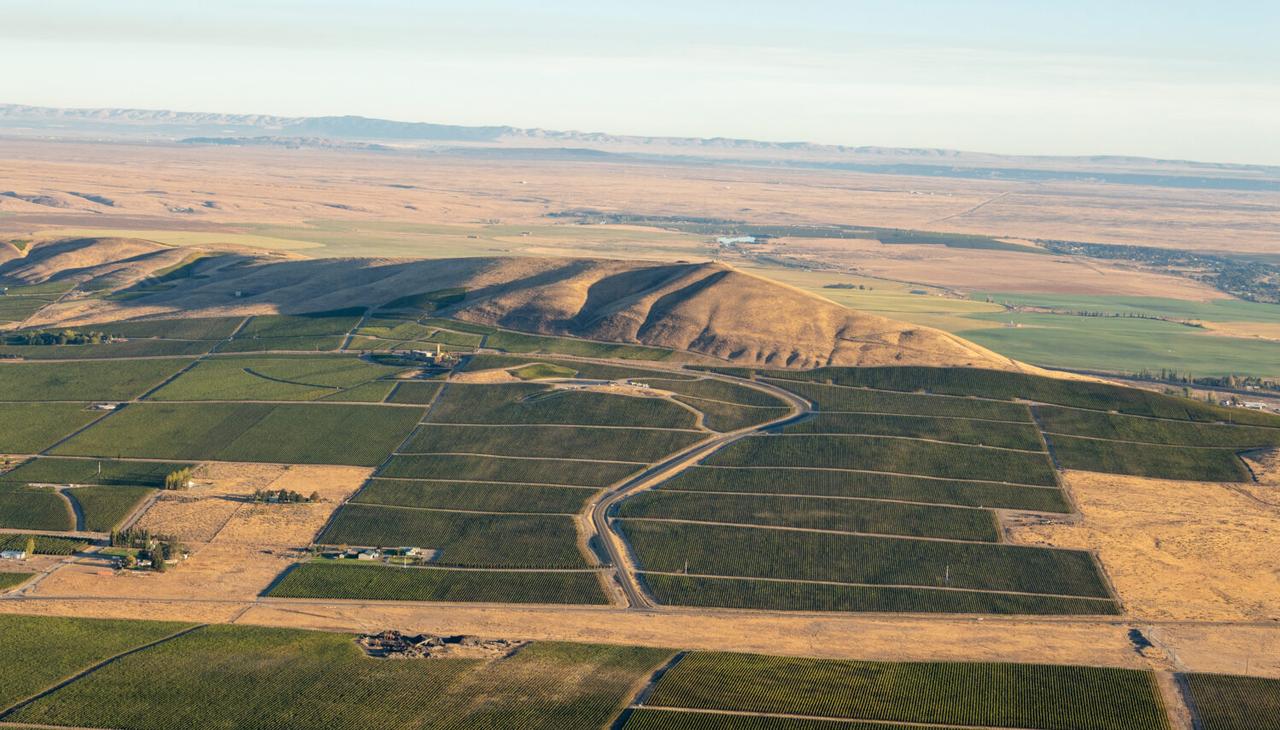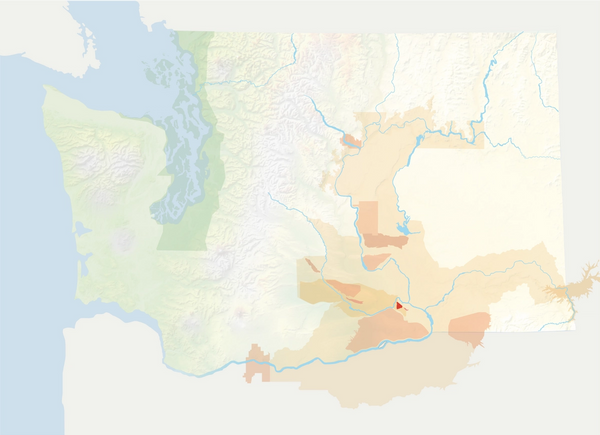
Red Mountain AVA
Red Mountain is neither red, nor a mountain, but the area does take on a reddish hue in springtime as the cheatgrass changes color. It's a very small, very warm region.
Key statistics
2001
2,382 acres
5 inches

Characteristics
About the region
At 4,040 total acres (1,630 ha), Red Mountain is one of Washington’s smallest appellations. It is also one of the state’s warmest, with broad, southwest-facing slopes that soak up the summer sun.
Due to these warm temperatures, red grape varieties dominate, particularly Cabernet Sauvignon, which makes up 60% of plantings. The area’s warm temperatures and persistent winds lead to small berry sizes and thicker skins. Red Mountain Cabernet Sauvignons tend to be full bodied, dark, and dense with firm tannins that provide exceptional ageability.
Located near the small town of Benton City, Red Mountain’s name is somewhat of a misnomer as it is neither red nor mountainous, with elevations ranging from 500 feet (152 m) to 1,500 feet (457 m). Red Mountain is, in fact, an anticline of the Yakima fold belt, a series of geologic folds that define a number of viticultural regions in eastern Washington. The area takes on a reddish hue in springtime as the cheatgrass changes color.
The nearby Yakima River moderates temperatures and provides continual airflow, guarding against frost that can be problematic in nearby areas. Nighttime temperatures drop precipitously—often as much as 40 degrees—helping preserve the acid levels in the grapes.
Red Mountain’s soil is made up of sandy loam and gravel with a high alkalinity (high pH) and a rich calcium carbonate content. A lack of soil nutrients along with the high pH reduces the vigor of the vines, resulting in significantly smaller berry sizes compared to varietal norms. This, along with prevailing winds, leads to higher tannin levels in many of the wines compared to other regions.
More than 15 wineries are located in the Red Mountain AVA. However, a very large number of wineries located in other areas source fruit from Red Mountain vineyards. Red Mountain is a sub-appellation of Yakima Valley, which is itself a sub-appellation of the larger Columbia Valley.




